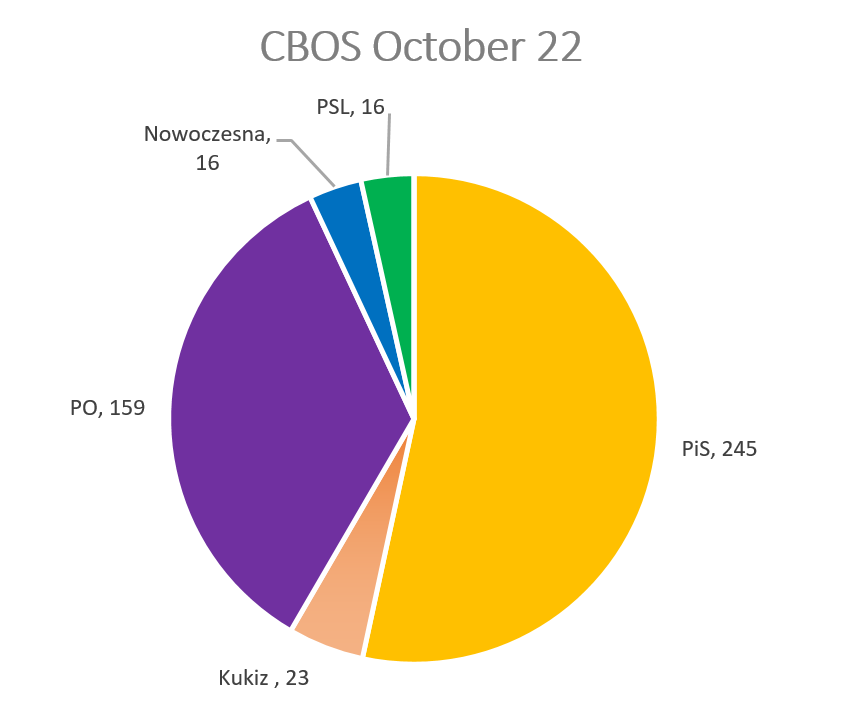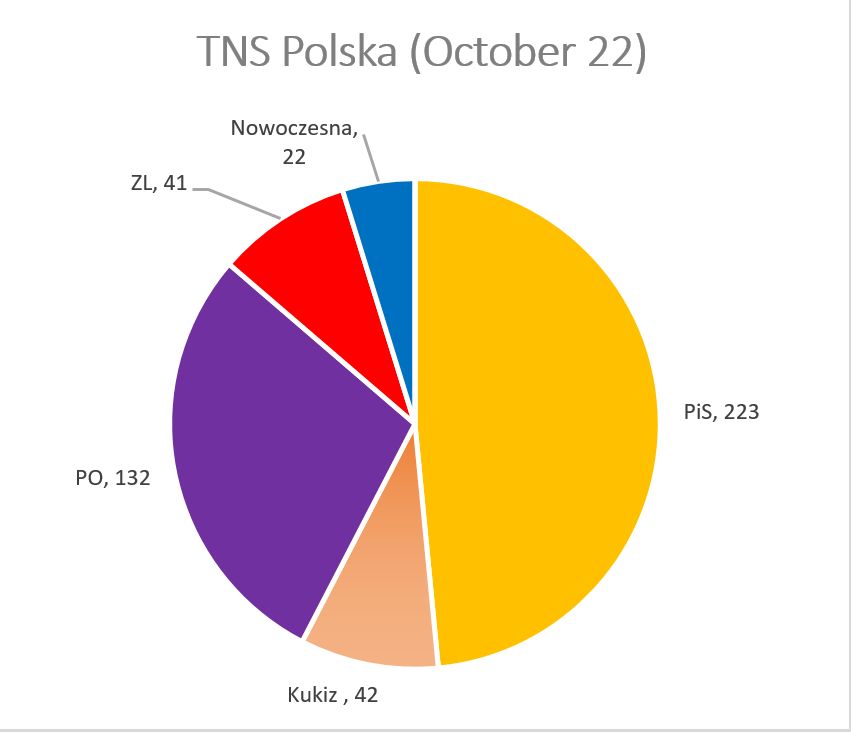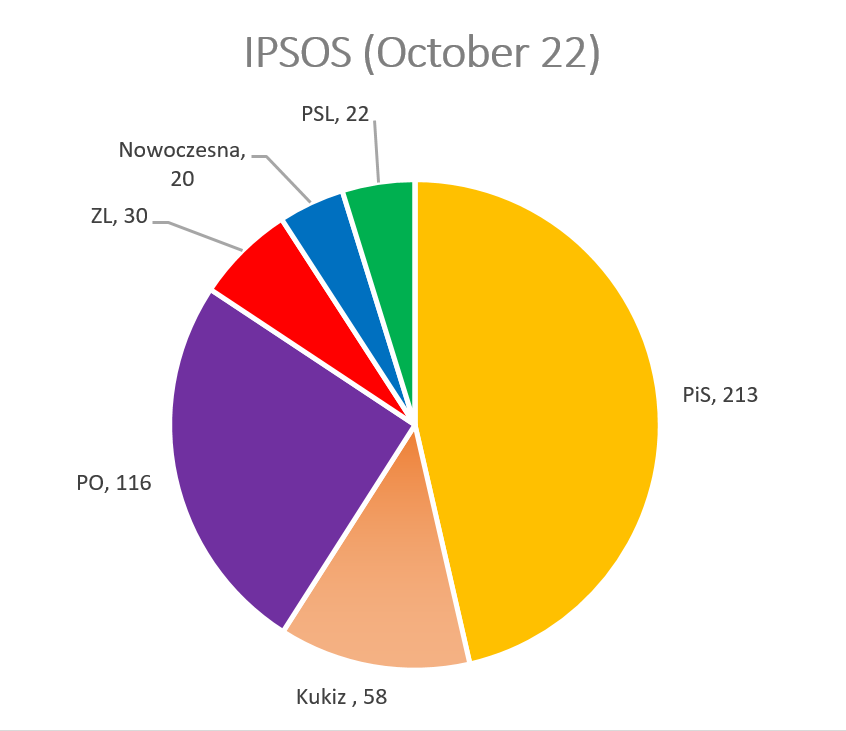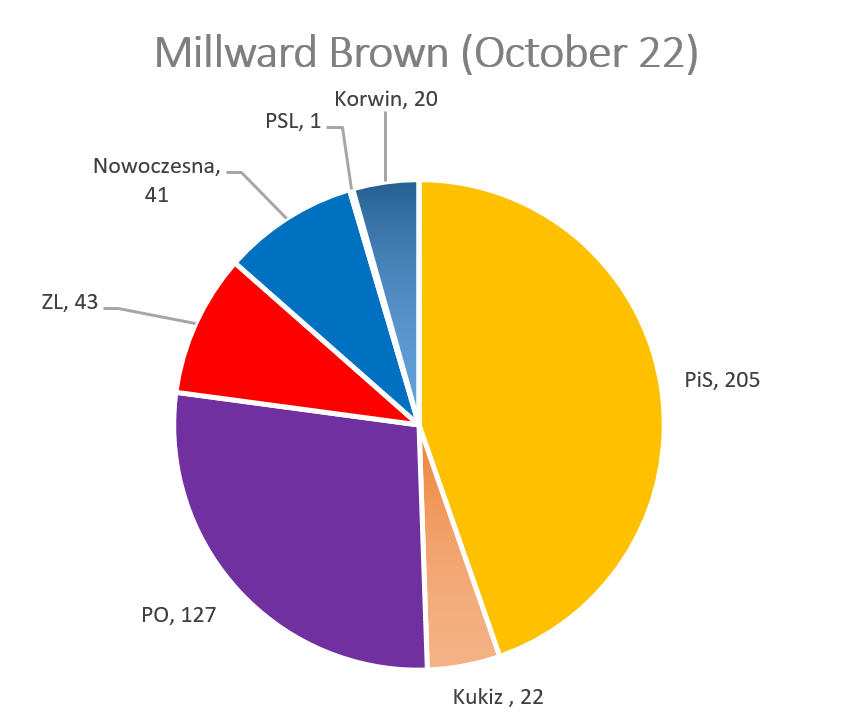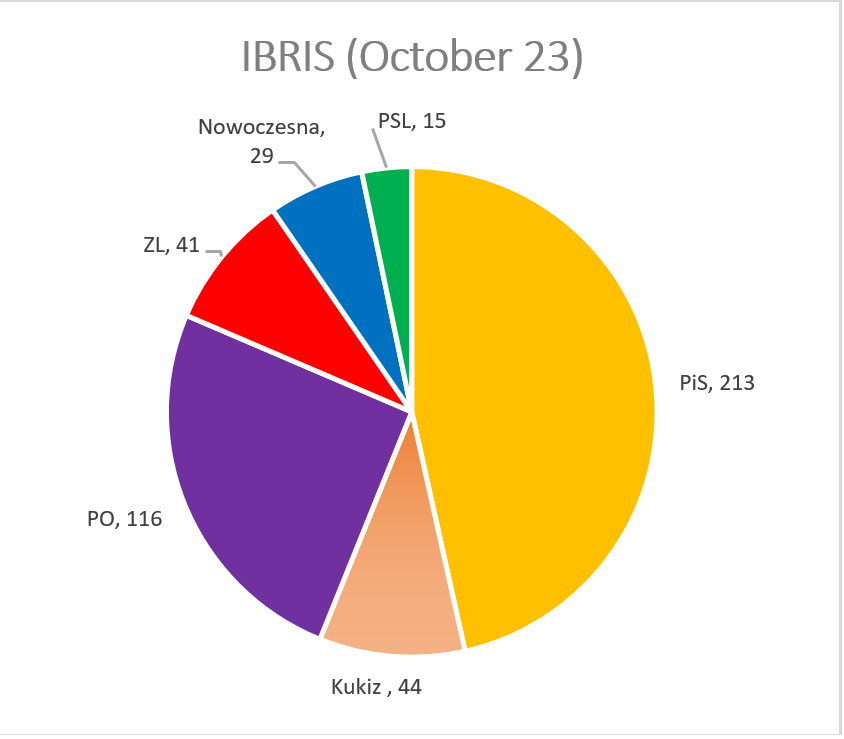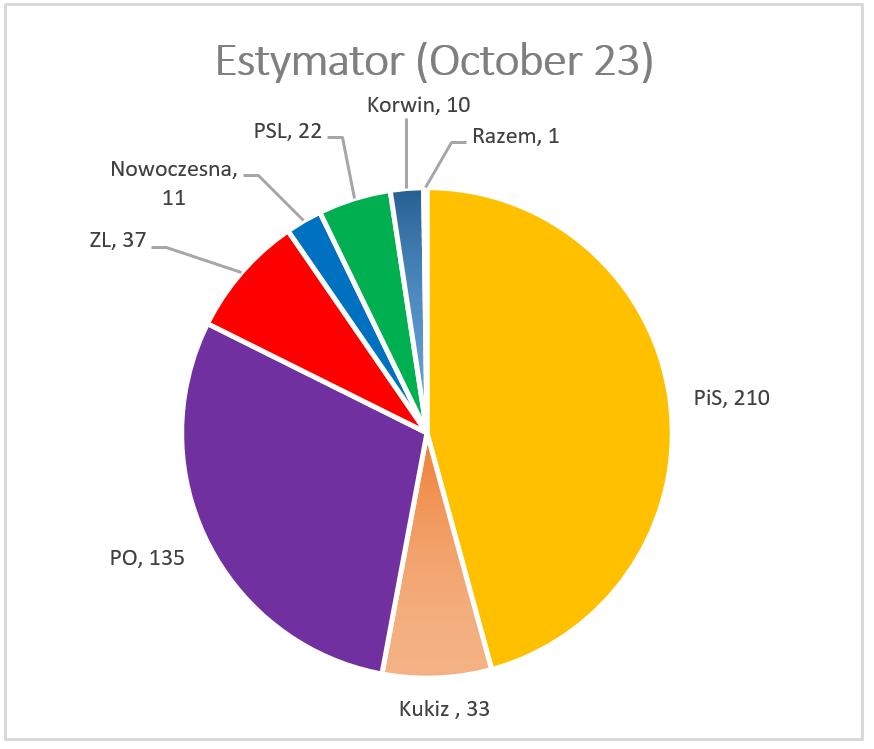Final Polish Election Update
We have now reached the “cisza wyborcza” (electoral silence), which means that all campaigning has now ended and the Polish media can no longer comment on the upcoming vote. The final surveys from the six major polling companies show as muddy a picture as ever, though only one would produce a sejm with the votes needed to keep PiS from power (assuming, of course, that a coalition including both the social democratic United Left and the libertarian Nowoczesna.pl would be feasible). On the other hand, only one survey would give PiS enough votes to govern alone. So we are back where we’ve been for several months, with the most likely outcome being a coalition between PiS, Kukiz, and perhaps Korwin.
The most interesting twist of the final week of the campaign came with the debate between representatives of all the smaller parties on Tuesday. The leader of the leftist party Razem (Together), Adrian Zandberg, surprised everyone with a stunning performance that left even many right-wing observers impressed. He was articulate, confident, and authentic — all features that voters seem to be craving. Since his party was polling well below the required 5% mark needed to win seats in the sejm, he had nothing to lose and spoke without any of the caution of a professional politician. The positive buzz he got might actually be enough to win Razem a seat (at least one survey suggests this), but the danger is that the party will win 3 or 4%, votes which could have gone to one of the larger party but would then be apportioned among all the winners (and thus mainly to PiS). In an election as close as this is likely to be, even one or two seats could be important.
But this is all speculation, and the time for that is over.
